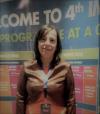What Causes Intervertebral Disc Herniations?

Posted on
Mon, 13 Apr 2015
Medically reviewed by
Ask A Doctor - 24x7 Medical Review Team
 Mon, 13 Apr 2015
Answered on
Mon, 13 Apr 2015
Answered on
 Tue, 5 May 2015
Last reviewed on
Tue, 5 May 2015
Last reviewed on
Question : I received my MRI results in the mail from the VA yesterday but not sure what the findings mean. I am awaiting an appointment with neurology but first available appointment is 2 months away. What does this mean?
MRI findings:
1. Prominent posterior central and right paracentral disc extrusion at C5-6, which effaces the anterior CSF space and abuts the regional spinal cord.
2. small posterior central disc protrusions at C3-4 and C4-5 with T2 hyper intense annular fissures.
Symptoms: right arm and shoulder pain. Neck pain. numbness in right side of face and right arm.
MRI findings:
1. Prominent posterior central and right paracentral disc extrusion at C5-6, which effaces the anterior CSF space and abuts the regional spinal cord.
2. small posterior central disc protrusions at C3-4 and C4-5 with T2 hyper intense annular fissures.
Symptoms: right arm and shoulder pain. Neck pain. numbness in right side of face and right arm.
Brief Answer:
Two types of disc hernation noted,explaining your actual symptoms....
Detailed Answer:
Hi,
Both findings of MRI (extrusion and protrusion) are indicating intervertebral disc herniations.
1. In the disc extrusion, there is a broader dome than neck, with herniation of nucleus pulposus beyond the confines of the disc.
2. On contrary, in the disc protrusions, protrusion of disc content is occurring beyond the normal confines of the intervertebral disc.
In both cases, the nerves that are passing by and innervated the shoulder, neck, head, arm areas are being compressed by these types of hernation, causing the symptoms you are currently having.
All the best!
Dr.Albana
Two types of disc hernation noted,explaining your actual symptoms....
Detailed Answer:
Hi,
Both findings of MRI (extrusion and protrusion) are indicating intervertebral disc herniations.
1. In the disc extrusion, there is a broader dome than neck, with herniation of nucleus pulposus beyond the confines of the disc.
2. On contrary, in the disc protrusions, protrusion of disc content is occurring beyond the normal confines of the intervertebral disc.
In both cases, the nerves that are passing by and innervated the shoulder, neck, head, arm areas are being compressed by these types of hernation, causing the symptoms you are currently having.
All the best!
Dr.Albana
Note: For further follow up on related General & Family Physician Click here.
Above answer was peer-reviewed by :
Dr. Chakravarthy Mazumdar

Answered by

Get personalised answers from verified doctor in minutes across 80+ specialties



